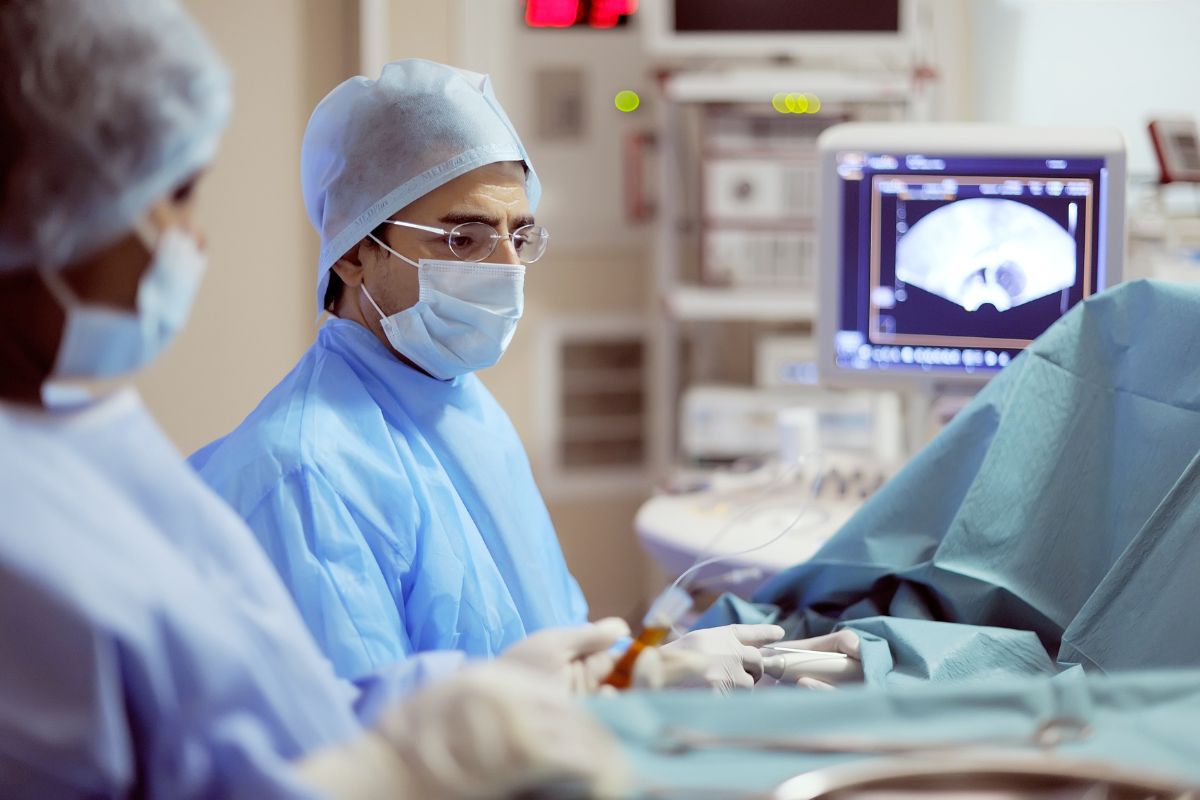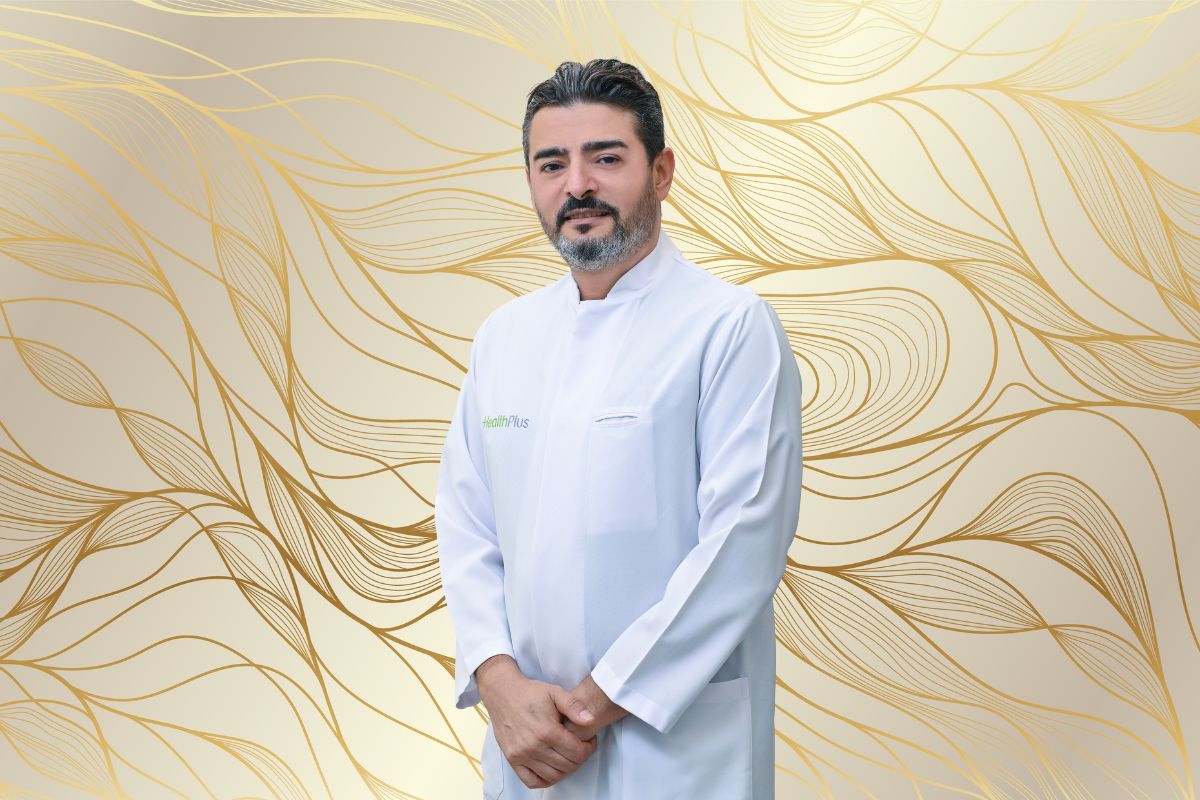
In conversation with Dr Walid Sayed, Group Medical Director at HealthPlus Fertility Center on pioneering fertility innovations
PARTNER CONTENT: In an increasingly modern world, navigating the path to conception can pose significant challenges. While the UAE may not be immune to the fertility struggles many couples face, HealthPlus Fertility Center has certainly emerged as a beacon of hope.
Led by the expertise of Dr Walid Sayed, Group Medical Director, the clinic has managed to provide tailored innovative solutions as well as compassionate care. Having begun his career in 1995, working across several countries, Dr Walid has personally witnessed the industry evolve.
“I have experienced a lot of changes in the fertility field,” he reflects. “Starting from the beginning of IVF, the inception of ICSI, and the development of various ovarian stimulation protocols, to the biopsy of embryos, genetic testing, assisted hatching and even the use of AI in our laboratory.”
In addressing fertility, one must also acknowledge the unfortunate decline, Dr Walid adds, “because we are getting further away from nature, people are eating things without knowing its source, with food being genetically modified which could affect fertility. Another thing is not caring about our lifestyle, including less sports and more chronic diseases like diabetes, obesity, etc.”
In such a climate, the hospital’s unwavering commitment to patient trust and stability then becomes a crucial pillar of its operations. Aside from offering top-notch services, patients are also able to rely on stability given the longstanding staff on hand.
The clinic’s approach to fertility treatment is highly individualised, ensuring that each patient receives the most appropriate care for their unique circumstances. From ovulation induction to intrauterine insemination and IVF, a tailored approach is one of many factors that has earned HealthPlus Fertility Center a reputation for excellence in the field of reproductive medicine.
Types of Fertility Treatment

While awareness might be on the rise, there are still certain gaps in information when it comes to fertility treatments available in Abu Dhabi.
“It depends on the case,” says Dr Walid. “Sometimes there is missing ovulation, so we do a kind of ovulation induction to give the patient a chance at natural conception. Another possibility is if we see that the man’s sperm has mildly restricted motility or are less in number, the patient could benefit from IUI or intrauterine insemination. This involves preparing good quality sperm, concentrating it and injecting it inside the uterus during ovulation.”
You might also like: INTERVIEW: Healthcare experts share their tips on navigating Ramadan safely
While these happen within the body, IVF or in vitro fertilisation is an external treatment. There are primarily two types, the first being conventional insemination that involves placing healthy sperm and mature eggs in a controlled incubator and letting natural selection occur. The second is an Intracytoplasmic sperm injection (ICSI), wherein a single healthy sperm is injected right into each mature egg. Most labs today opt for the second procedure as it offers increased accuracy.
However, Dr Walid believes that they should be actually used more, subject to the embryologist’s experience to choose the right candidate for the process. “A lot of statistics say that the implantation rate by embryos developing through the normal process, which we call in vitro is higher than XE (ICSI). That’s why we promote this method where possible.”
Embracing Technological Evolution

A fascinating highlight of fertility treatments is the integration of AI technology, which marks a significant leap forward in improving success rates.
“Artificial intelligence plays a crucial role in our laboratory,” Dr Walid explains. “The programme assists in selecting the best sperm for fertilisation and scoring eggs to choose the right gametes for the process. AI algorithms ensure the selection of the healthiest entries.”
“After the sperm is injected into the egg,” he adds, “the AI supervision over the embryo begins. This includes the entire process from fertilisation to development of embryos for about five to six days outside the body. Following that, the AI will decide which kind of embryos would favour a normal process of development and compare it with our existing database to select the best option for a healthy birth after this treatment.”
This development has come to be a valuable asset, especially for future embryologists and physicians in terms of saving them a lot of time, allowing them to work in the labs on other tasks as well.
By leveraging AI algorithms, HealthPlus Fertility Center optimises the selection process, ultimately increasing the chances of successful conception for couples undergoing fertility treatment.
Another massive development comes in the form of genome testing, Dr Walid notes.
“In the past, we used to transfer embryos in early stages, like day two or three of fertilisation. Nowadays, we permit the culture of the embryos for longer with the knowledge that not all embryos will reach blastocyst stage. Once there, the chance of implantation should logically be higher. That aside, another advantage is the genetic testing of an embryo.”
“If we know patients already have a disease or history in the family, we do blood tests before starting the treatment to identify where exactly the mutation is placed in the chromosome and the exact spot on the gene it may be at. We then send the material from the embryo test exactly for this gene. This is called single-gene disorder testing, which is very advanced and provides extremely accurate results.”
With risk of miscarriages on the rise in the UAE, the genome programme proves more timely than ever. Through advanced testing and diagnoses, doctors are now able to prevent the risk of inherited diseases. Even before marriage, couples can undergo blood tests to assess the risk factor at conception as well as determine the need for IVF.
As always, patient outreach remains a cornerstone of all things at HealthPlus Fertility Center. From detailed seminars for couples to outreach programmes highlighting precautions to be taken during periods of fasting such as Ramadan, there is a constant outpour of information to ensure transparency and awareness.
In addition to being guided by the physicians and nurses assigned, patients are also given access to an IVF counsellor for appropriate end-to-end support.
Setting aside the historic taboos and seemingly complex nature of the process, Dr Walid advises couples approaching fertility treatments to avoid pressure. “The treatment today is not difficult like it once was. It’s important that patients not be under stress during it and ask all the questions they have before the treatment starts. Or even during the treatment if needed because an unanswered question for a patient could lead to worrying them, which works against our intended successful outcome. It is important to ensure a positive environment even at home. There is an increased success rate for couples seeking treatment today as opposed to 20 years back, so one need not worry.”
For more information, visit Health Plus IVF
Follow Yalla – Abu Dhabi Life for all the latest news across the capital and beyond

